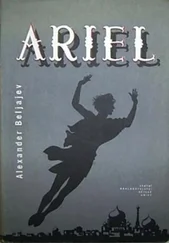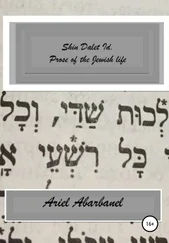Ariel Toaff - Blood Passover
Здесь есть возможность читать онлайн «Ariel Toaff - Blood Passover» весь текст электронной книги совершенно бесплатно (целиком полную версию без сокращений). В некоторых случаях можно слушать аудио, скачать через торрент в формате fb2 и присутствует краткое содержание. Жанр: Религиоведение, на английском языке. Описание произведения, (предисловие) а так же отзывы посетителей доступны на портале библиотеки ЛибКат.
- Название:Blood Passover
- Автор:
- Жанр:
- Год:неизвестен
- ISBN:нет данных
- Рейтинг книги:3 / 5. Голосов: 1
-
Избранное:Добавить в избранное
- Отзывы:
-
Ваша оценка:
- 60
- 1
- 2
- 3
- 4
- 5
Blood Passover: краткое содержание, описание и аннотация
Предлагаем к чтению аннотацию, описание, краткое содержание или предисловие (зависит от того, что написал сам автор книги «Blood Passover»). Если вы не нашли необходимую информацию о книге — напишите в комментариях, мы постараемся отыскать её.
Blood Passover — читать онлайн бесплатно полную книгу (весь текст) целиком
Ниже представлен текст книги, разбитый по страницам. Система сохранения места последней прочитанной страницы, позволяет с удобством читать онлайн бесплатно книгу «Blood Passover», без необходимости каждый раз заново искать на чём Вы остановились. Поставьте закладку, и сможете в любой момент перейти на страницу, на которой закончили чтение.
Интервал:
Закладка:
"Last Sunday (17 March 1555) [...] finding herself at the said Mass (in the Church of San Marcilian) [...] the mother of meser Zuan Baptista, a Hebrew physician having become a Christian, just as the priest was saying the Credo: Et incarnatus est de Spiritu Sancto ex Maria Virgine et homo factus est , said the following, or similar, words: 'You’re lying through your teeth. Jesus was the bastard born of a whore'" [620] Cfr. loly Zorattini, Processi del S. Uffizio contro ebrei e giudaizzanti , cit., voI. I, p. 152.
.
The anti-Christian sentiments expressed through the texts of the Toledot Yeshu and assimilated by the old Paduan Jewish woman thus found an uncontrollable outlet, in church, in an automatic and perhaps involuntary reflex. Poor Elena’s basic personality was still Jewish and Ashkenazi, and would probably remain so forever afterward.
A few years later, two other Ashkenazi Jews were tried by the Inquisition of Venice for insulting the Christian faith, and once again, the accusation turned on the allegation of Jesus’ spurious birth as the son of a menstruating woman. Aron and Asser (Asher, Anselmo) were two aimless and unaccomplished youths having arrived in the ghetto of Venice around 1563, the one from
p. 200]
Prague and the other from Poland. They later decided to convert to Christianity and enter the Casa dei Catecumeni [Church institution for the conversion of Jews and infidels] to try to make ends meet by means of a self-interested and calculated baptism. But they obviously proved to be rather poorly convinced of the basics of the Christian religion, since they were indicted by the Holy Office for uttering unspeakable insults against Jesus and the Virgin Mary [621] Il processo ad Aron e Asser dinanzi all'Inquisizione di Venezia è segnalato e trascritto da P.C. loly Zorattini, Processi del S. Uffizio contro ebrei e giudaizzanti. II : 1561-1570, Florence, 1982, pp. 17-19,31-48 . In this regard , see also Pullan , The Jews of Europe and the Inquisition of Venice , cit., pp. 296-297.
. The two Ashkenazi youths appeared to have been nurtured upon massive doses of the anti-Christian motifs characteristic of the Toledot Yeshu .
"Esso (Asser) began to say that the Lord God was a bastard son of a whore, saying in the Hebrew language that the Lord God was engendered while the Madonna was having her menstrual period, and, what is even more insulting, saying mamzer barbanid [622] The Hebrew expression mamzer barbanid is an obvious corruption of mamzer bar ha-niddah , "bastard son of a menstruating woman", and not as maintained by loly Zorattini, “ mamzer barchanit ” (?), "turncoat bastard, deserter" (cfr. loly Zorattini, Processi del S. Uffizio contro ebrei e giudaizzanti, cit., voI. II, p. 33).
,which means what I said above [...] He uttered opprobrious words offensive to the Divine Majesty and the glorious Virgin Mary, asserting that Christ was a bastard born by carnal sin when the Madonna Virgin Mary was having her menstrual period" [623] Cfr. ibidem, pp. 33, 46.
.
Almost a century had passed since the Trent trials and the polemical motifs of Samuele da Nuremberg’s sermon over the corpse of little Simon-Jesus, taken from the Toledot Yeshu -- which had now become a classical text -- were still alive and well in the Ashkenazi environment of the valleys of the Loire and the Rhône, the Rhine and Danube, the Elba and the Vistula, and all communities having migrated down from the other side of the Alps to the plains of the Po and the gulf of Venice.
Another outrageous assertion about the Christian religion very widespread among Jews of German origin was based on the Talmudic dictum that Jesus was to suffer punishment in the coming world, condemned to immersion in "boiling excrement" [624] Babylonian Talmud, Ghittin, c. 57a.
. The Jewish bankers of the Duchy of Milan accused of contempt for the Christian faith in 1488 were asked whether their texts claimed that Jesus was condemned to the pains of Hell and placed in a pot full of excrement. Salomone Galli da Brescello, a Jew from Vigevano, had no difficulty in admitting that he had indeed read that malodorous prophecy in a little notebook which passed through his hands in Rome during the Pontificate of Sixtus IV [625] "Interrogatus si dicunt lesum Christum damnatum est in inferno et ibi positum est in vase uno pieno excrementre et si habent predicta scripta in libris eorum vel aliis scripturis, respondit et dicit quod semel in civitate Romana et tempore papis Sisti audivit predicta verba et vidit predicta in uno quinterneto et verba ea legit" [“In reply to the question of whether it is said that Jesus Christ is in hell and was placed in a vase full of excrement there and whether such words appeared in their books or other scriptures, he answered and said that he had read the aforementioned words in Rome, in a booklet during the reign of Pope Sixtus”] (cfr. Antoniazzi Villa, Un processo contro gli ebrei nella Milano del 1488 , cit., p. 102).
. Salomone, a Jew from Como, and Isacco da Parma, a resident of Castelnuovo Scrivia, confirmed that they, too, were aware of the Hebraic texts asserting that Jesus, in the future world, was destined to be immersed in a bath of steaming feces ("Jesus the Nazarene [...] he is being punished in excrement, in boiling shit") [626] Salomone da Como stated "quod comprehendere ipsius quod (Iesu) sit iudicatus in excrementre calido" [“that he understood that (Jesus) was being punished in hot excrement”](cfr. ibidem, pp. 112-114).
.
p. 201]
It should be noted in this regard that the Hebraic sources refer to a significant and revealing episode linked to the sanguinary massacre of the Jewish community at Magonza in 1096. On that occasion, David, son of Netanel, the person responsible for the synagogue services ( gabbay ), is said to have turned to the Crusaders about to kill him cruelly, wishing them the same fate as Jesus, "punished by immersion in boiling excrement" [627] Cfr. A.M. Haberman, Sefer ghezerot Ashkenaz we-Zarf at ("Book of the Persecutions in Germany and France"), Jerusalem, 1971, p. 36.
. When it came to anti-Christian polemic, Ashkenzi Jews didn’t beat around the bush, and the tragic events of which they were the victims served as a justification for an uncompromising hatred, verbally insulting and violent in action, at least whenever possible.
On the other hand, the Christians, too, loved the idea of the pious Jew, the scrupulous observers of the Law, immersed up to the neck in baths of excrement, as a well-deserved punishment for their arrogant blindness. Friar Luisi Maria Benetelli of Venice, lecturer in Hebrew at Padua and later at Venice, reported, with ill-concealed satisfaction, a malodorous anecdote of ancient origin describing a Jew, devote observer of the Sabbath, compelled to pass the week-end among the miasmas of a filthy cesspool due to his obtuse religiosity.
"Mr. Salamone, having fallen into the bog of a ditch, so as not to violate the feast day of the Sabbath, rejected the charity of a Christian who offered to pull him out. Sabbath sancta colo, de stercore surgere nolo [I must adhere to the Sabbath, and do not wish to be pulled out of the shit]. The following day, the same good man passed by again, and the Jew beseeched him for assistance in getting out of the ditch, but the Christian excused himself saying, 'Yesterday was your feast day, today is mine', and left him there to enjoy that aromatic stench all Sunday. Sabbatha nostra quidem Salomn celebrabis ibidem " [628] Luigi Maria Benetelli, Le saette di Gionata scagliate a favor degli Ebrei , Venice, Antonio Bortoli, 1703, p. 410.
.
For many, the synagogue, particularly, during the most significant moments of the liturgy, was the most suitable place to confer solemnity and sacral effectiveness upon anathemas, invective and contempt, often accompanied by the dramatic exhibition of aggressive and mocking gestures. One of the most important days of the Jewish calendar among the Jews of the German territories during the Middle Ages was the feast of Pesach , when they opened the doors of the holy Ark to extract the rolls of the Law. It was then, in the context of prayers for the festivity, that they cursed the Christians in stentorian voices, "uttering imprecations to which one cannot listen" [629] In this regard, see S. Krauss, Imprecation against the Minim in the Synagogue , in "The Jewish Quarterly Review", IX (1897), pp. 515- 517.
. But the insults and the contempt were also pronounced by the litigious faithful, who had, or
Интервал:
Закладка:
Похожие книги на «Blood Passover»
Представляем Вашему вниманию похожие книги на «Blood Passover» списком для выбора. Мы отобрали схожую по названию и смыслу литературу в надежде предоставить читателям больше вариантов отыскать новые, интересные, ещё непрочитанные произведения.
Обсуждение, отзывы о книге «Blood Passover» и просто собственные мнения читателей. Оставьте ваши комментарии, напишите, что Вы думаете о произведении, его смысле или главных героях. Укажите что конкретно понравилось, а что нет, и почему Вы так считаете.












